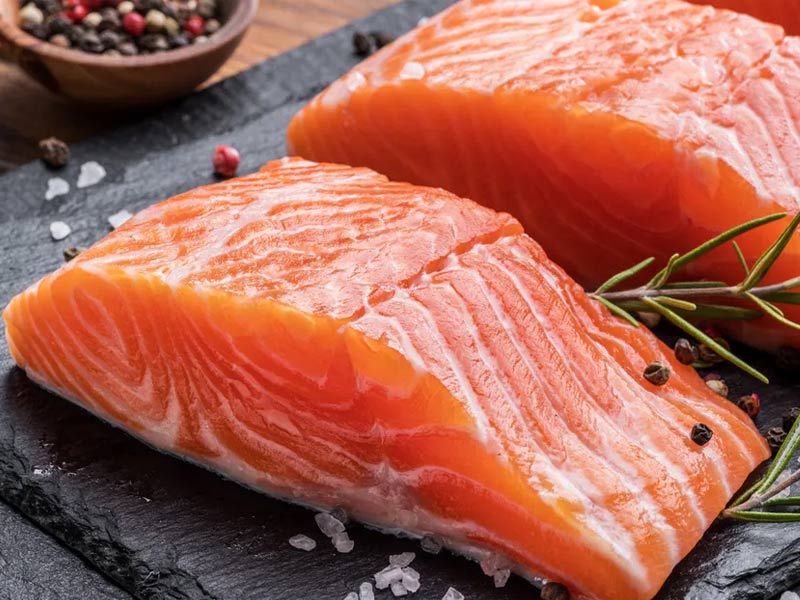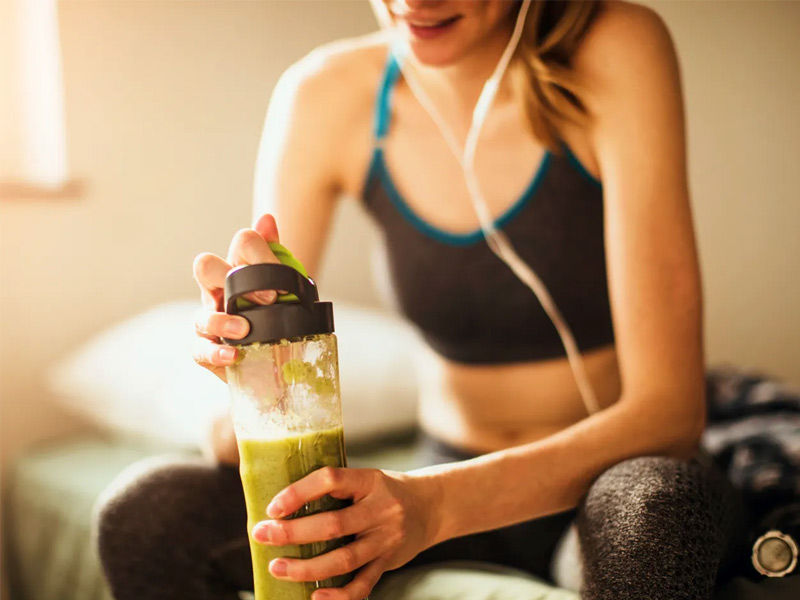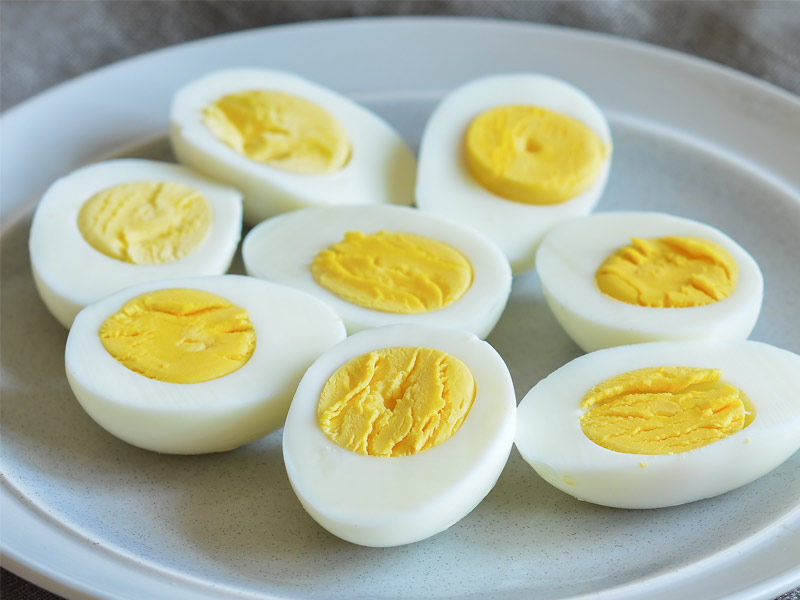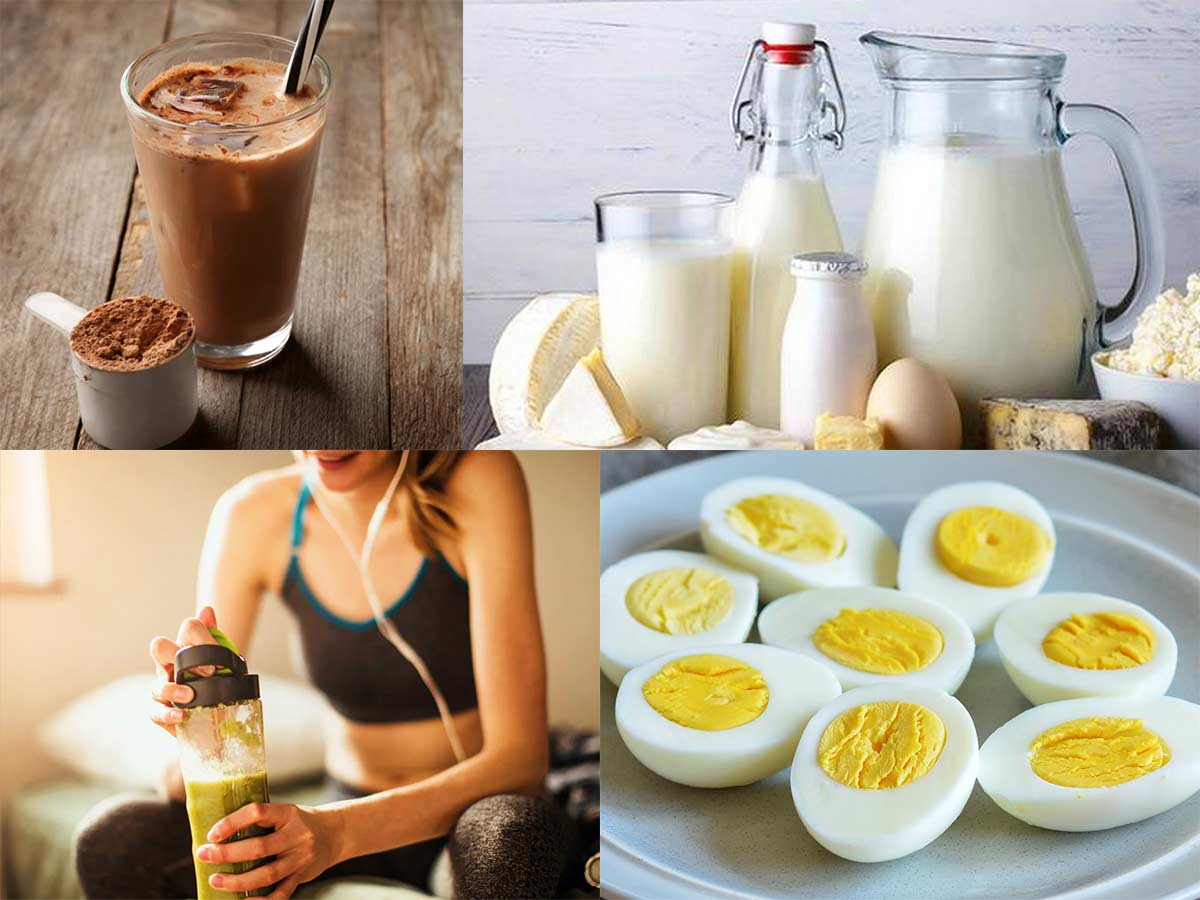Yes, there is a term called Bodybuilding foods
Bodybuilding aims to achieve and sustain a well-balanced, lean, and muscular physique. It varies from powerlifting and Olympic lifting. It judges competitors based on their personal appearance rather than their physical strength. Diet is the single most critical aspect of your overall bodybuilding program when it comes to piling on pounds of pure, unadulterated muscle.
Many bodybuilders and weight lifters begin with an off-season diet followed by an in-season diet known as the bulking and cutting phase/appearance. The bulking process can last months or years, during which they consume a high-calorie, protein-rich diet and lift weights vigorously to gain as much muscle as possible. Following the cutting process, the aim is to lose as much fat as possible while preserving muscle mass. This is accomplished over time by implementing specific dietary and exercise adjustments.
You must concentrate on your diet to achieve successful results from your training. Consuming the wrong bodybuilding foods can be harmful to your bodybuilding goals. This article discusses what to eat and avoid in a bodybuilding diet, as well as a supplement guide for bodybuilders.
Suppose you’ve determined how many calories you need. In that case, you can calculate your macronutrient ratio, which is the percentage of protein, carbohydrate, and fat consumption, in contrast to the disparity in calorie requirements between the bulking and cutting phases. Protein and carbohydrates have four (4Kcal) calories per gram, while fat has nine (9Kcal).

It is advised that you obtain
- Protein accounts for 30–35 percent of your calorie intake.
- Carbohydrates provide 55–60% of your calories.
- 15–20% of your calories should come from fat.
Here’s an illustration of a ratio for both a bulking and a cutting phase:
Note: Calorie’s intake varies from person to person according to body goal. This illustration is for a person doing an intense workout maintaining body weight between 80-90 kg.
Nutrition |
Bulking Phase |
Cutting Phase |
| Calory Intake | 3450 calories | 2550 calories |
| Protein (In grams) | 250-300g | 190-230g |
| Carbohydrates(g) | 450-510g | 350-380g |
| Fats (g) | 55-75g | 45-55g |
Why is nutrient intake through food and supplements important?
Eating the right nutrient-dense bodybuilding foods in the right quantities feeds the muscles the nutrients they need to heal from workouts and grow bigger and stronger. Eating the wrong, unhealthy foods at the wrong times or not consuming enough of the right ones with the required supplements, on the other hand, can have an effect on your goals.
Here are a few bodybuilding foods and supplements to consider:

- Grains: whole-wheat bread, cereal, oatmeal, quinoa, rice, and so on.
- Meats, poultry, and fish, such as chicken breast, salmon, beef, eggs, etc.
- Vegetables include broccoli, spinach, leafy salad greens, tomatoes, green beans, zucchini, asparagus, peppers, and mushrooms, among other things.
- Sweet potatoes, corn, and other starchy vegetables
- Chickpeas, lentils, kidney beans, black beans, sprouts, and other legumes and beans
- Dairy products such as yogurt, cottage cheese, low-fat milk, and so on.
- Fruits such as apples, oranges, pears, berries, and bananas
- Almonds, walnuts, pumpkin seeds, sunflower seeds, chia seeds, and flax seeds are examples of seeds and nuts.
- Oils, such as olive oil, groundnut oil, coconut oil, flaxseed oil, etc.
Supplements for Bodybuilding
Many bodybuilders use nutritional supplements, some of which are beneficial while others are not.
Among the best bodybuilding supplements are:

Whey protein powder:
Drinking whey protein powder is a quick and easy way to improve your protein intake.
Creatine:
Creatine gives the muscles the energy they need to do an extra rep or two. Although there are numerous brands of creatine available, creatine monohydrate is the most efficient.
Caffeine:
Caffeine reduces fatigue and helps you to work more efficiently. It’s in pre-workout vitamins, coffee, and tea.
While you should include several bodybuilding foods and supplements in your diet, some you should restrict, such as alcohol, which can affect muscle mass, added sugars, which provide a lot of empty calories, and deep-fried foods, which are bad for your health.
Also Read, Body Weight training exercises at home for weight loss
1 Week Diet Plan

Bodybuilders’ diets are often characterized as restrictive, repetitive, and boring. Traditional bodybuilding diets usually provide few bodybuilding food options and little variation within and within food classes, leading to an insufficient intake of essential minerals and vitamins. As a result, it’s critical to integrate variety into your diet to ensure your nutritional needs are met — especially during a cutting process when you’re eating fewer calories. To help muscle building, each meal and snack should contain 20–30 grams of protein. You can eat the same foods you would while bulk, but in smaller portions during the cutting process.
Here’s an example of a one-week bodybuilding menu.
On Monday,
- Scrambled eggs with mushrooms and oatmeal for breakfast.
- Snack: Blueberries and low-fat cottage cheese.
- Lunch consists of a venison burger, white rice, and broccoli.
- Snacks: a protein drink and a banana
- Dinner will consist of salmon, quinoa, and asparagus.
On Tuesday
- morning breakfast: protein pancakes with light syrup, peanut butter, and raspberries.
- Hard-boiled eggs and an apple for a snack
- Lunch: Sirloin steak with sweet potato and spinach salad dressed with vinaigrette.
- Snack: protein shake with walnuts
- Dinner: Pasta with ground turkey and marinara sauce.

On Wednesday,
- Breakfast consists of chicken sausage, an egg, and roasted potatoes.
- Snacks include Greek yogurt and almonds.
- Lunch consists of turkey breast, basmati rice, and mushrooms.
- Protein shakes and grapes for a snack
- Dinner: Mackerel, brown rice, and vinaigrette-dressed salad leaves.
On Thursday,
- Breakfast: Whole-grain tortilla with ground turkey, egg, cheese, and salsa.
- Snack: Yogurt topped with granola.
- Lunch consists of a chicken breast, a baked potato, sour cream, and broccoli.
- Snack: Protein shake with mixed berries
- Stir-fry with chicken, egg, brown rice, broccoli, peas, and carrots for dinner.
On Friday,
- Breakfast: overnight oats with blueberries, strawberries, and vanilla Greek yogurt.
- Jerky and mixed nuts for a snack
- Lunch consists of tilapia fillets marinated in lime juice, black and pinto beans, and seasonal vegetables.
- Snacks include a protein shake and watermelon.
- Dinner consists of ground beef, corn, brown rice, green peas, and green beans.
On Saturday,
- Breakfast consists of ground turkey and an egg with corn, bell peppers, cheese, and salsa.
- Snack: Tuna with crackers.
- Lunch consists of a tilapia fillet, potato wedges, and bell peppers.
- Snack: Protein shake with pears.
- Diced beef with rice, black beans, bell peppers, cheese, and pico de gallo for dinner.
On Sunday,
- Breakfast consists of sunny-side-up eggs and avocado toast.
- Protein balls and almond butter for a snack
- Pork tenderloin slices with roasted garlic potatoes and green beans for lunch.
- Protein shakes and strawberries for a snack
- Dinner: turkey meatballs with marinara sauce and parmesan cheese served over spaghetti.

























